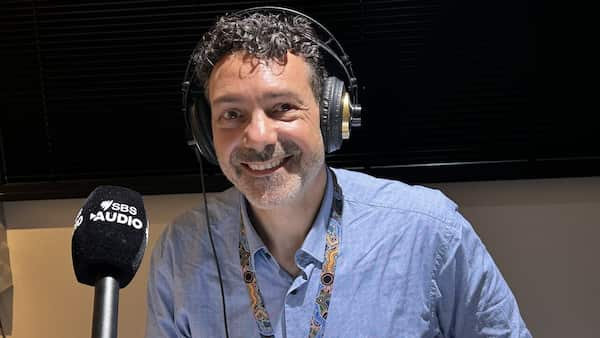Ahmet Aktepe, 90, arrived in Australia from Türkiye in 1974, one year before SBS was established.
"The only connection we had with Türkiye then was the radio," he told SBS Turkish.
"We longed for home. Everyone listened to Turkish radio with longing. We worked all day, but we made sure not to miss the radio at home and on weekends."
February 13th is World Radio Day, which celebrates radio's importance as a source of information, education, and entertainment since its invention as a medium over 130 years ago.
For migrant communities across Australia, radio has always been a vital link to their homelands, and SBS, broadcasting in over 60 languages, has played a crucial role in fostering these connections.
LISTEN TO

World Radio Day Special: The resilience, innovation & digital transformation of radio
SBS Tamil
10:01
Ahmet's son, Bayram, recalls his family following Turkish politics on the radio, notably learning about the 1980 coup in Türkiye through SBS Turkish.
"We also learned about services and benefits available to the Turkish community. We wouldn't have known about them otherwise," he said.
Patrick Acierda, an avid radio listener since childhood, migrated to Australia and was delighted to find SBS Filipino.
"In the early 2000s, we discovered the SBS Filipino program," he said. "I'm happy to hear news and information in my own language."

Patrick Acierda has been listening to SBS Filipino since the early 2000s. Source: Supplied / Patrick Acierda
Nuananong Sethasridumrong, from Thailand, told SBS Thai, "Radio has been very helpful since I arrived. It provides details about settling in Australia and various services available to the multicultural community."
Fellow Thai immigrant, Sopha Cole, agrees, adding, "It offers valuable insights about living in Australia, including updates from the Australian government. Especially during the COVID-19 pandemic, SBS provided a lot of helpful information."
LISTEN TO

How does media work in Australia?
SBS English
15:06
Radio also connects listeners to significant historical moments.
Bharatbhai Joshi, a long-time SBS Gujarati listener, recalls the 1983 Cricket World Cup final between India and the West Indies.
"I was watching the match on TV in Gujarat when a power outage struck. I grabbed a radio, tuned in to the live commentary, and witnessed India's historic victory."
Even today, radio maintains its power to connect. Bayram, now working in Qatar, turns to Australian radio to stay connected to his adopted home.
"I listen to Australian radio online while having breakfast," he explained.
"When we first came to Australia, we listened to Turkish news. Now, in Qatar, I listen to Australian news. When we're abroad, we crave news from where we grew up. Radio remains the easiest way to get it."
Radio listeners are also optimistic about the future of the medium amid a constantly evolving media landscape.
Himanshu Pradhan, a listener of SBS Nepali, told the program, "People used to say that radio would die out and cease to exist. However, over time, radio has evolved with various new dimensions. Podcasts are also a part of this evolution — an extension of radio itself.
"Through podcasts, radio continues to thrive ... it seems that the habit of listening to the radio hasn’t declined, in fact, it might be growing even more.”

